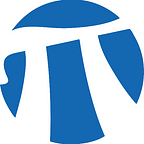2020 PIMS-CNRS IRL Fellowships
The PIMS-CNRS International Research Lab #3069, originally signed in 2007, has been an integral component of efforts to facilitate and encourage transatlantic research opportunities.
By Jimmy Fryers
Each year several Fellowships are awarded to faculty-member researchers from the PIMS community to visit institutes and collaborate with colleagues in France.
In 2020 two researchers have been awarded the PIMS-CNRS IRL Fellowship and will be spending time in France. Here are their stories:
Jennifer McLoud-Mann, Professor and Chair
Dr. McLoud-Mann is a Professor of Mathematics at the University of Washington Bothell where she chairs the division of engineering and mathematics.
Which institute will you be visiting and who will you be collaborating with?
I will be visiting Laboratoire Bordelais de Recherche en Informatique (LaBRI), working with Sébastien Labbé.
When will you undertake your fellowship?
The fellowship will run between September 16, 2019, and June 15, 2020
What is the topic of the research you will be undertaking?
There have been some very exciting advances in the area of Wang tiles in recent years. Recently, Michael Rao and Emmanuel Jeandel demonstrated the existence of an aperiodic protoset of 11 Wang tiles and proved that 11 is the minimal size of such a protoset.
It has long been understood that Wang tiles provide a platform for universal computation; that is, Wang tiles can model the behaviour of Turing machines. This deep connection between computation, geometry, and symbolic dynamics is at the core of recent work on Wang tiles.
Labbé has begun explorations and made significant advances into the dynamics of aperiodic Wang tile sets, and I am excited to learn from and contribute to his exciting research program.
What you hope to achieve during the fellowship?
Mathematically I hope is to gain a deeper understanding of Wang tiles, learn about interesting topics in other fields that seem to be closely connected to them, and establish research results in this area.
Personally I want to establish a meaningful research collaboration with Sebastién and possibly others in France.
In addition, I want to take full advantage of my first time living abroad by learning more about the working life at a French university and the leisure outside of it in the Bordeaux region.
Why did you apply for the PIMS-CNRS IRL Fellowship?
On sabbatical, I have a reduced salary and this fellowship will help me financially, especially since I am living abroad. I was recently informed about this opportunity from another PIMS faculty who I met on sabbatical.
Dr. Cedric Chauve, Professor
Dr. Chauve is a Professor in the Department of Mathematics at Simon Fraser University. His research focuses on the development of mathematical and computational methods for the analysis of biological sequence data.
Which institute will you be visiting and who will you be collaborating with?
I will visit a few different institutes during my Fellowship:
- The University of Bordeaux: collaborating with Michael Wallner, Mathieu Raffinot (CNRS) and Raluca Uricaru.
- Pasteur Institute: collaborating with Rayan Chikhi (CNRS)
- Ecole Polytechnique: collaborating with Yann Ponty (CNRS)
- Lyon I University: collaborating with Eric Tannier (INRIA)
When will you undertake your fellowship?
It will take place between December 2019 and June 2020
A summary of the research you will be undertaking
I will mainly work on two topics.
- The design of efficient computational methods for processing sequencing data toward genome assembly (Pasteur collaboration) and deconvoluting the diversity of pathogens within a patient (Raffinot/Uricaru collaboration). In both cases, I rely on the techniques of combinatorial optimization to translate these problems into graph optimization problems that I solve using Integer Linear programming.
- The development of combinatorial models for counting and sampling solutions for two mathematical biology problems, namely the reconstruction of gene evolution trees conditioned to a species phylogeny, and the RNA design (aka inverse folding) problem. These are in collaboration with Ponty/Wallner and Tannier. In both cases, we rely on the description of the problem through formal grammars describing the solution space and we obtain precise enumerative results and efficient sampling algorithms using techniques of analytic combinatorics and dynamic programming.
What you hope to achieve during the fellowship?
Aside from obtaining good scientific results, I intend to take advantage of the PIMS funding to establish solid collaborations that will allow me to bring my french colleagues to Vancouver or to send my trainees from Vancouver to visit my french collaborators.
In particular, the collaboration with Polytechnique follows the 2-year visit of Yann Ponty in Vancouver as a PIMS-CNRS fellow. I think this shows the interest of the PIMS IRL program as a complement of the agreement with CNRS.
Why did you apply for the PIMS-CNRS IRL Fellowship?
The funding from the fellowship is very useful for visiting my french collaborators for frequent short visits. My other funding is mostly aimed at funding trainees, and the PIMS funding complements it very well and allows me to organize visits as needed with little constraints.
This is very useful as short (two to 5 days) visits are, in my opinion, the most efficient way to collaborate in the french setting (i.e. short distances to travel to visit colleagues).
There are numerous research funding opportunities under the PIMS-CNRS IRL umbrella. To learn more about the available programs and how to apply, please visit our website.
